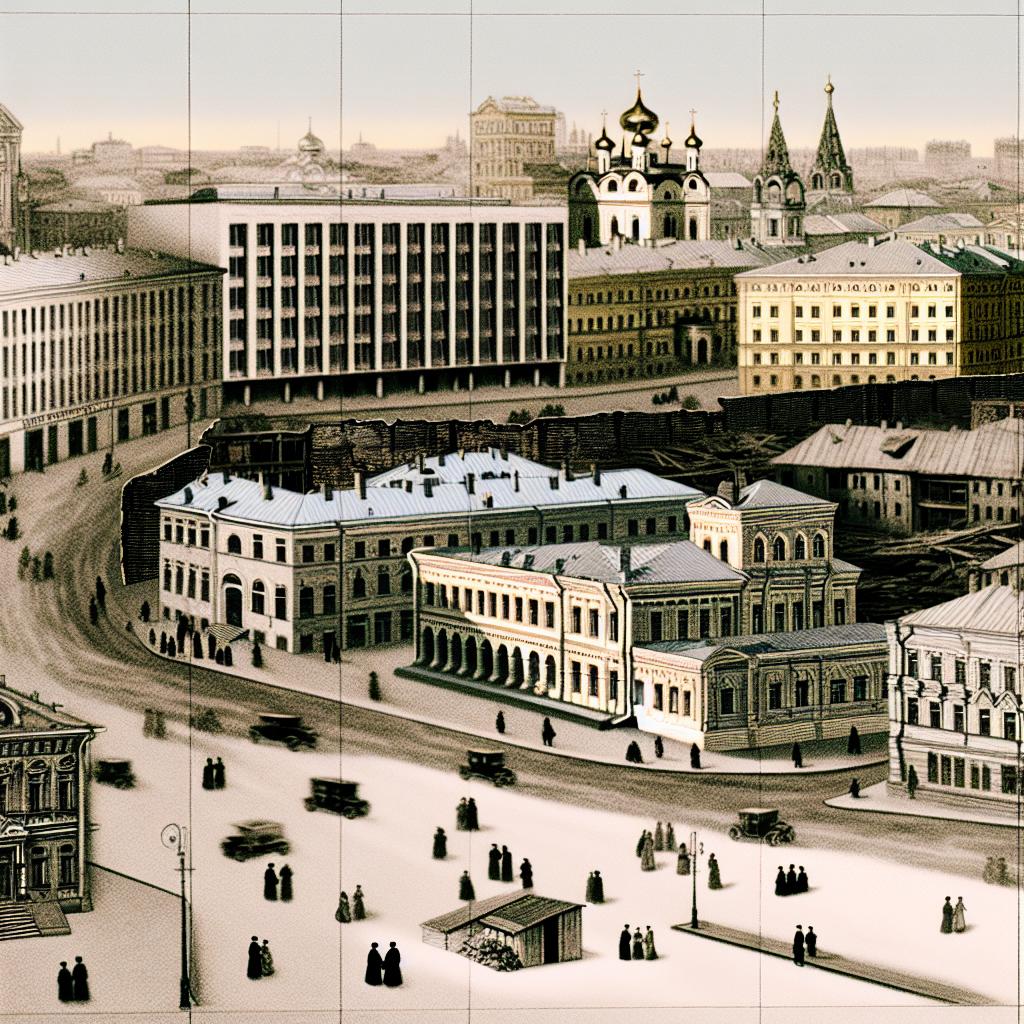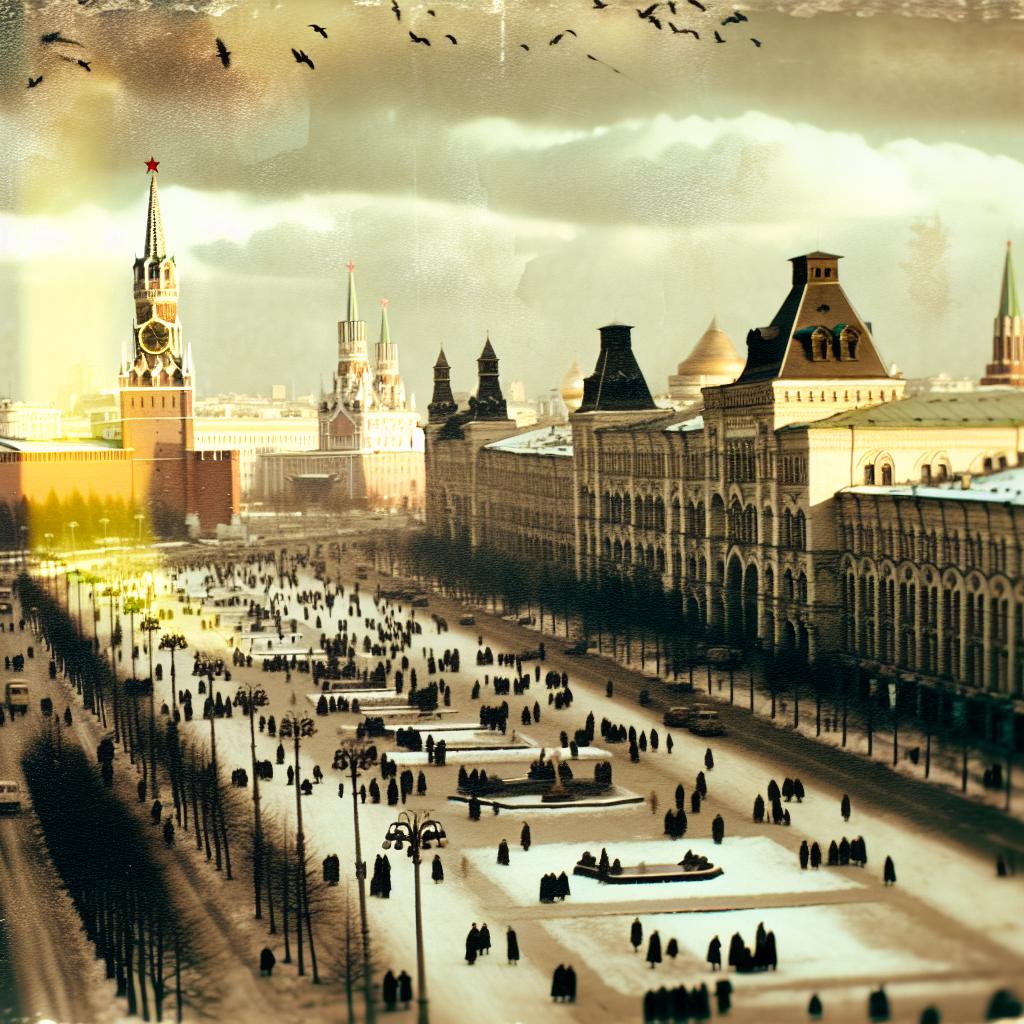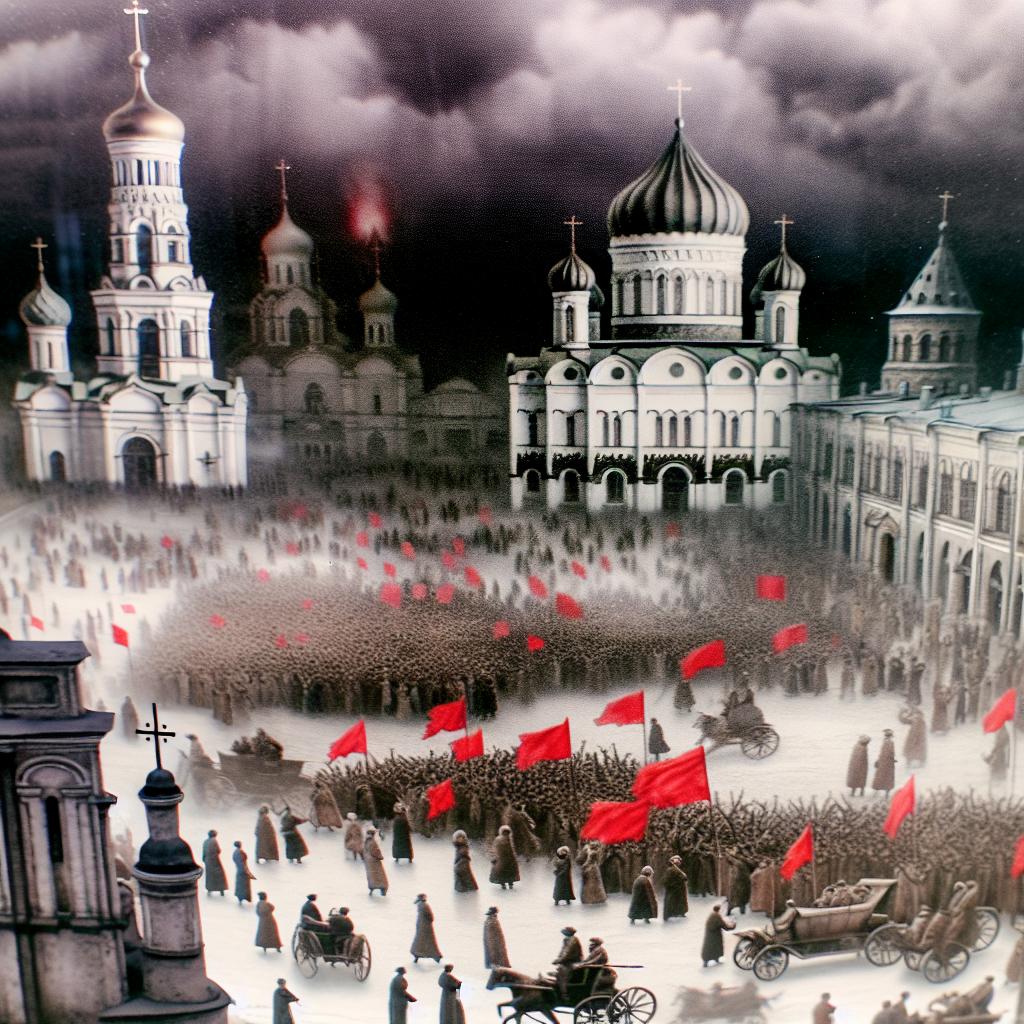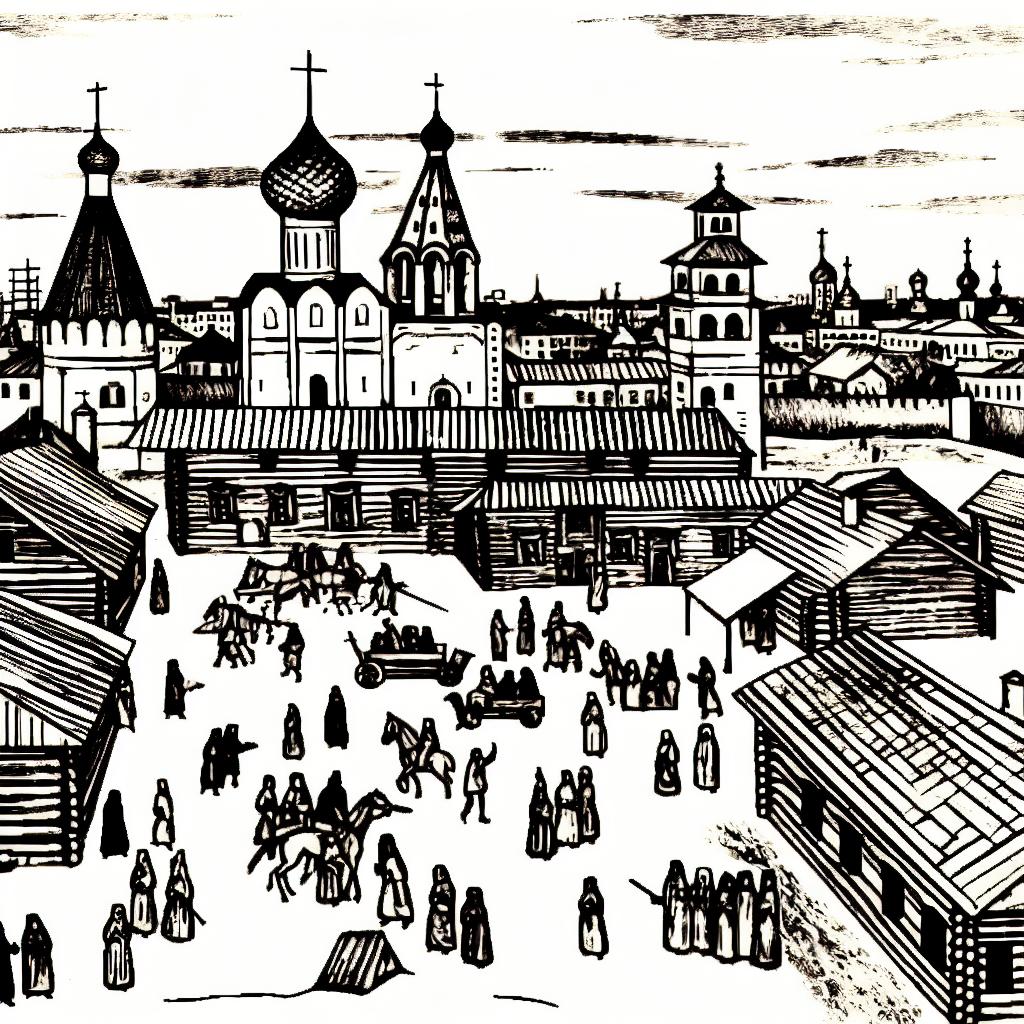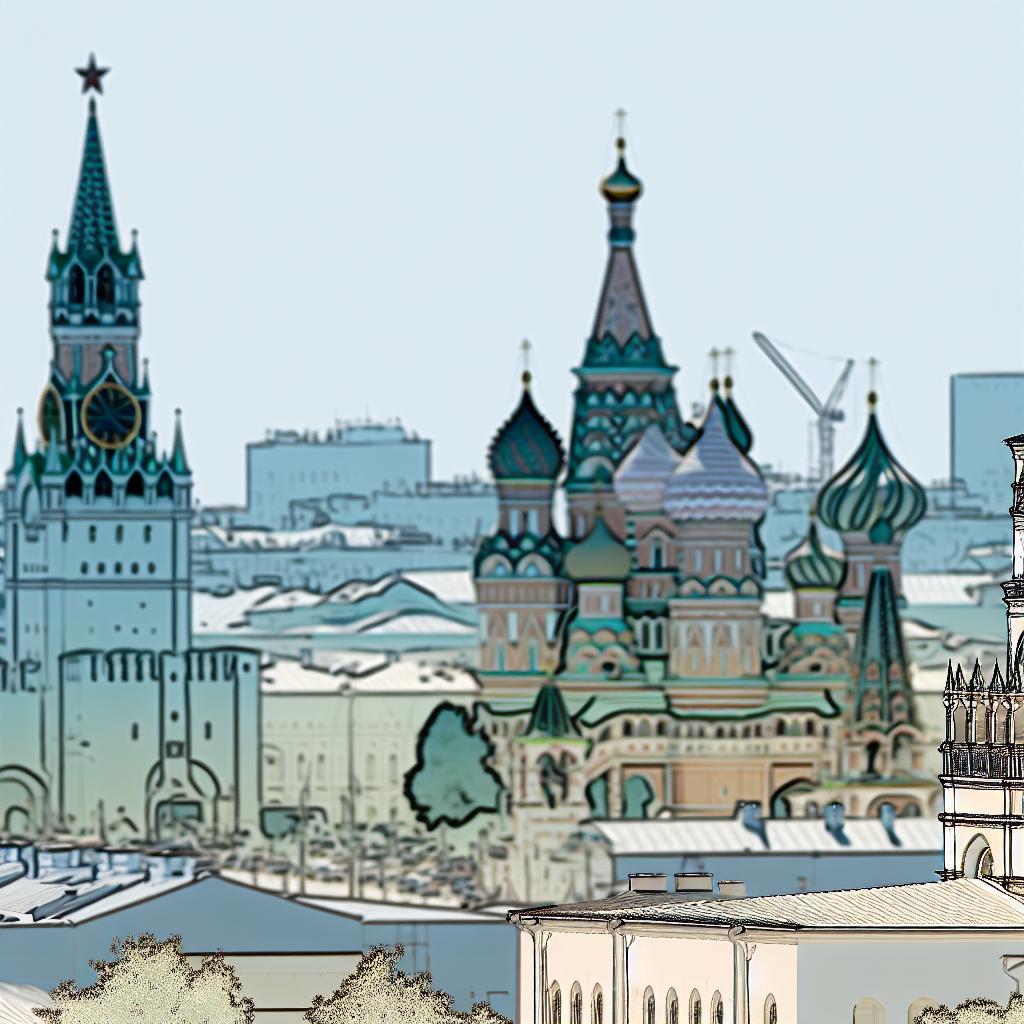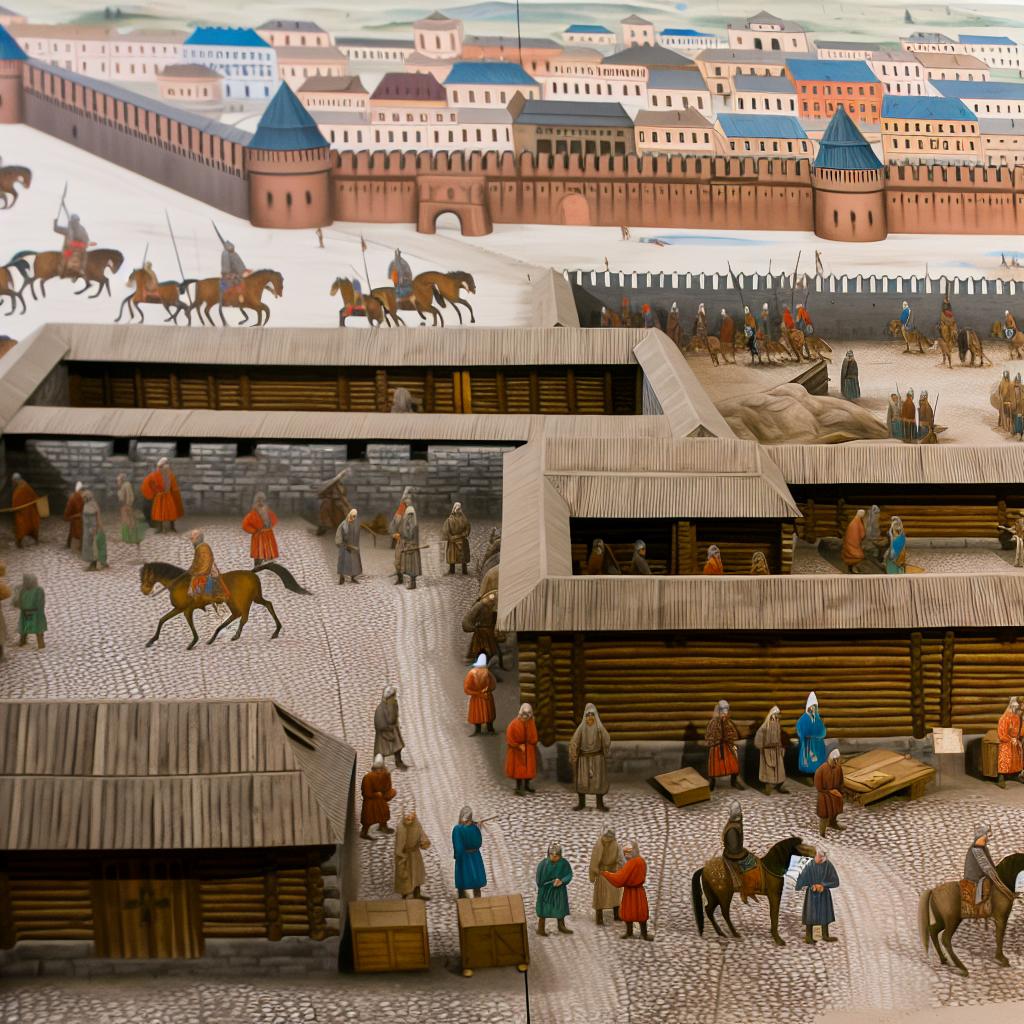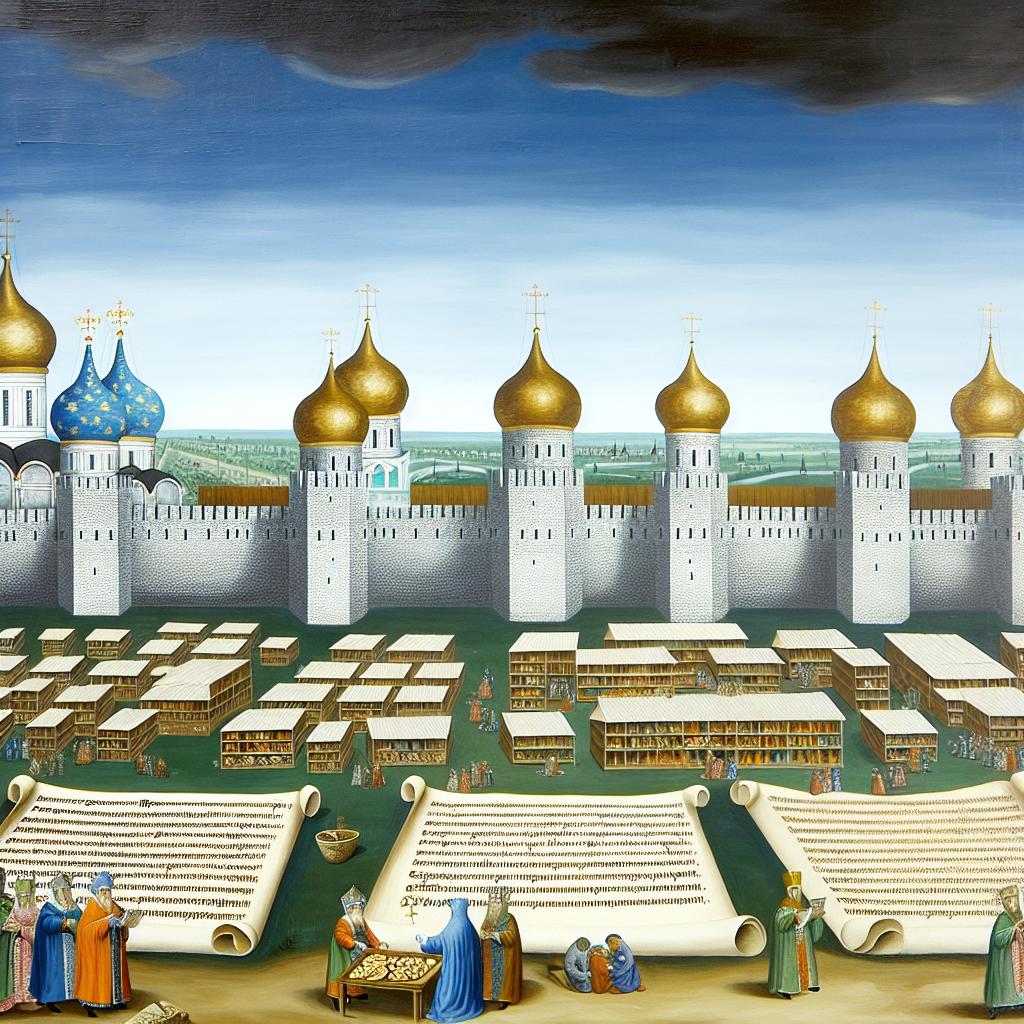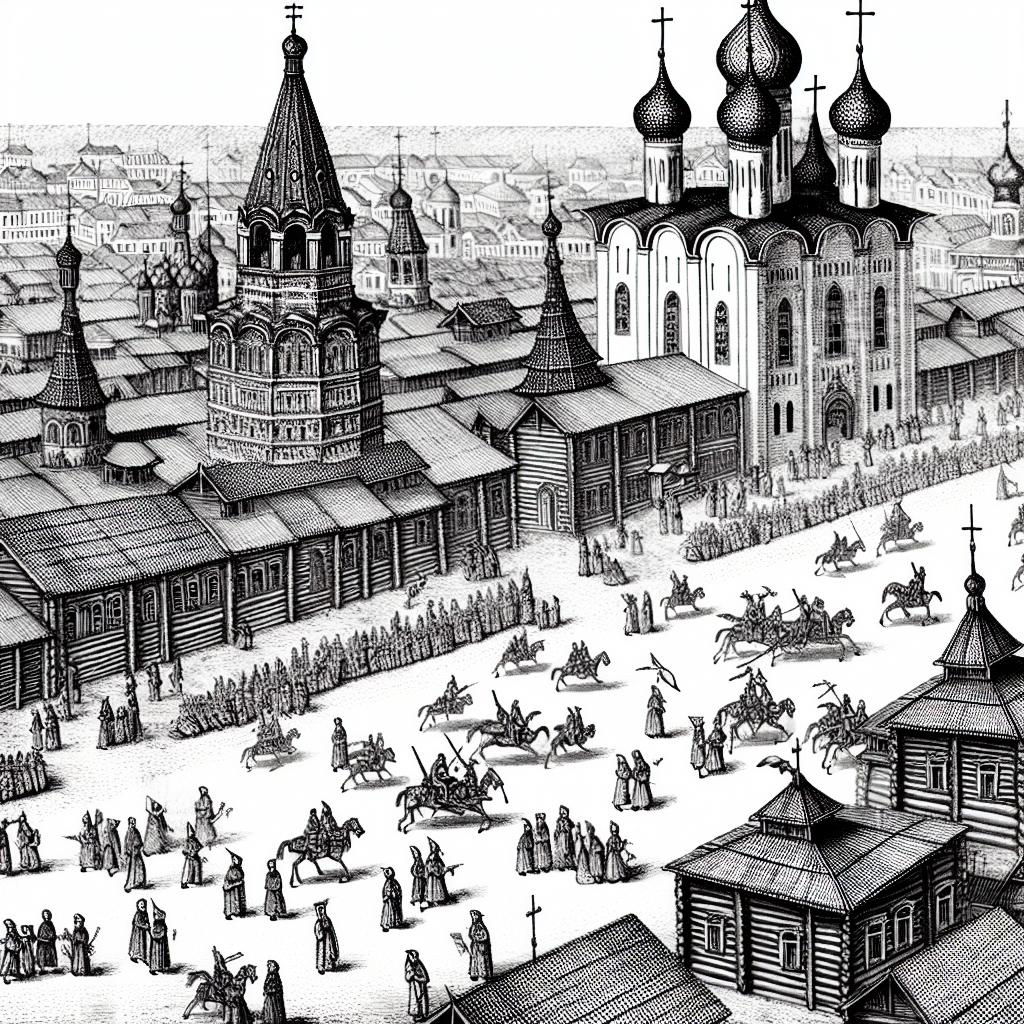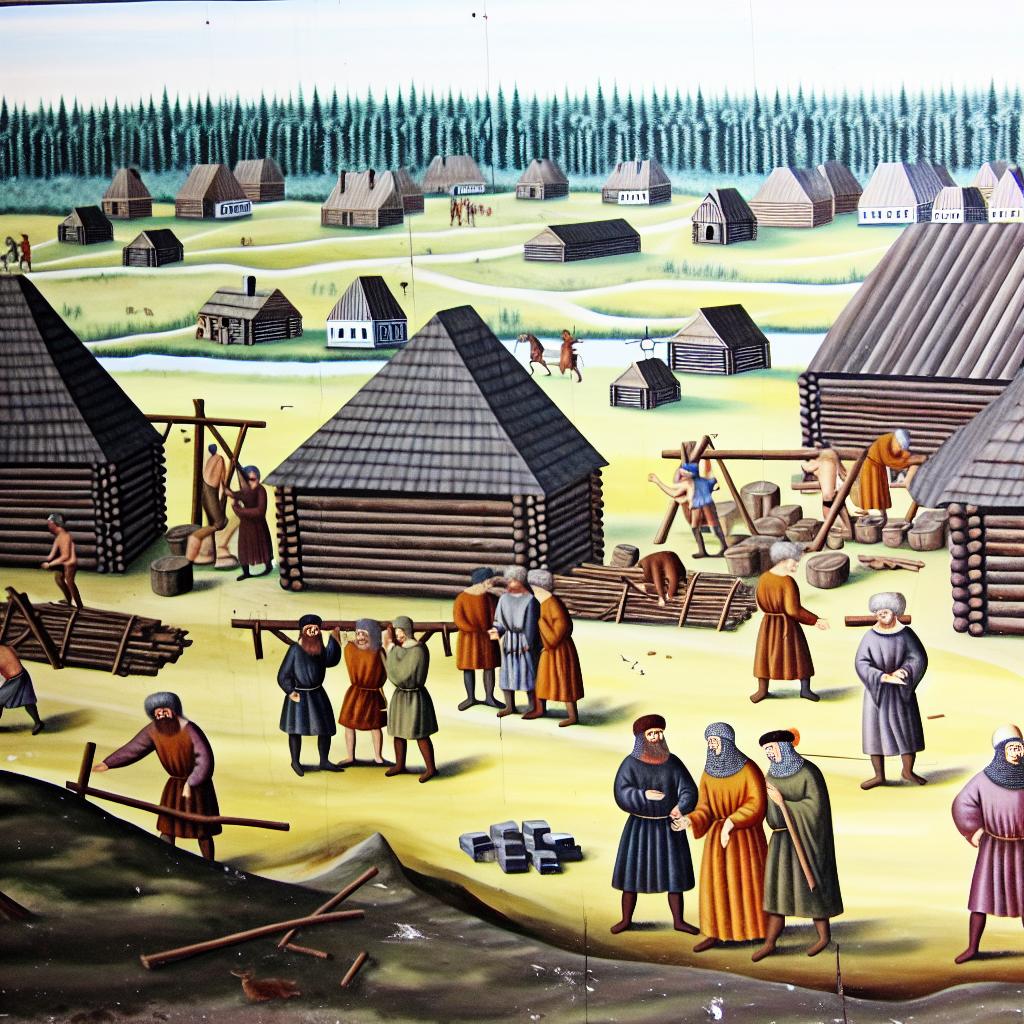The Collapse of the Soviet Union The dissolution of the Soviet Union in December 1991 marked a significant turning point in world history. The collapse dismantled not just a geopolitical entity but also ended the decades-long Cold War. For many, this brought a sense of relief and hope for a post-Cold War era characterized by […]
Read MoreCategory: History
Moscow during the Soviet era
Moscow: The Heart of the Soviet Union Moscow, the capital city of the Soviet Union, held a crucial role as the epicenter of political power and cultural influence from 1922 until the dissolution of the USSR in 1991. It was not just a city but a symbol of a socialist reality, bustling with activities that […]
Read MoreThe October Revolution of 1917 in Moscow
The October Revolution of 1917 in Moscow The October Revolution, a pivotal event in Russian history, took place in 1917 and marked the beginning of Soviet rule. Although it is commonly associated with the Bolshevik seizure of power in Petrograd, Moscow also played a crucial role in these transformative events. The revolution in Moscow was […]
Read MoreMoscow’s role in defeating Napoleon in 1812
The Context of the Napoleonic Wars In the early 19th century, Europe was engulfed in a series of conflicts known as the Napoleonic Wars. These were a collection of military campaigns initiated by Napoleon Bonaparte, whose ambition was to expand French dominance across the continent. During this period, Napoleonic France was recognized as a dominant […]
Read MoreThe Time of Troubles and Moscow’s role
The Time of Troubles: An Overview The period in Russian history known as the Time of Troubles is a defining chapter that significantly shaped the future trajectory of the nation. Spanning from the death of Tsar Ivan IV in 1584 to the establishment of the Romanov dynasty in 1613, this era was characterized by political […]
Read MoreIvan the Terrible’s influence on Moscow
Introduction Ivan IV, commonly known as Ivan the Terrible, stands out as one of the most significant and contentious figures in Russian history. His reign marked a crucial period in the transformation of Moscow, evolving from a medieval principality into a central cohesive state. Ivan’s influence was extensive and multifaceted, deeply impacting the political, social, […]
Read MoreMoscow during the Mongol invasion
The Rise of Moscow Amidst the Mongol Invasion Throughout the 13th century, the Mongol Empire expanded across Eurasia under the leadership of Genghis Khan and his successors. One of the most impactful phases of this expansion was the Mongol invasion of Kievan Rus’, a federation of Slavic tribes that included what is now Ukraine, Belarus, […]
Read MoreThe rise of the Grand Duchy of Moscow
The Early Foundations of the Grand Duchy of Moscow In the northeastern part of Europe, the Grand Duchy of Moscow, often referred to as Muscovy, emerged as a formidable power by the end of the Middle Ages. Initially, it was a minor principality whose rise to prominence was marked by strategic territorial expansion, skillful diplomacy, […]
Read MoreMoscow as the capital of medieval Rus
Historical Context During the medieval period, the region known today as Russia was a patchwork of principalities often referred to as the lands of “Rus.” The individual principalities were independent entities, each ruled by its own prince and possessing its own centers of power and influence. The fragmented nature of these territories meant that power […]
Read MoreFounding of Moscow (1147)
The Historical Context of Moscow’s Founding The city of Moscow, currently serving as both the capital and the most populous city of Russia, has its roots tracing back to the early 12th century. The commonly accepted founding year is 1147, a year historically significant as it marks the first known mention of Moscow. During this […]
Read More
